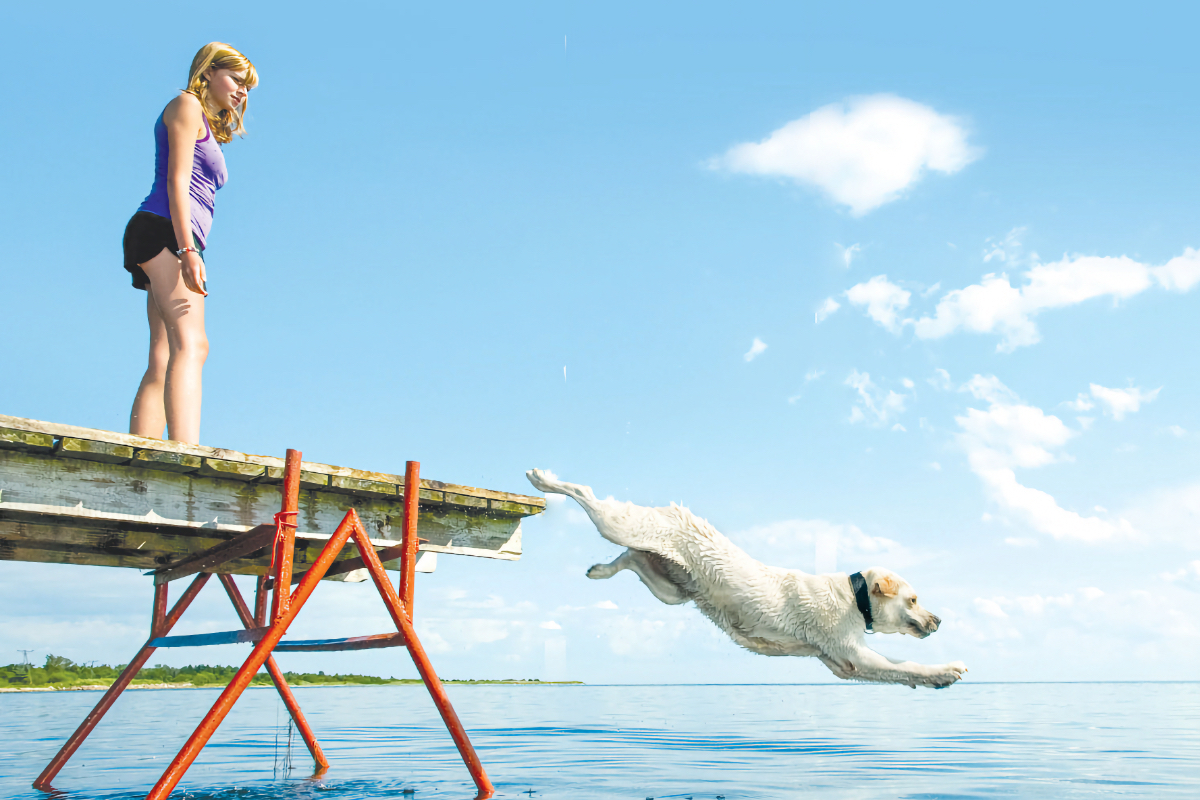RV Camping Horror Stories
Image Caption:
Once again, it’s that time of the year when we acknowledge that RVers – even smart ones like you and me – do some really dumb things. “I never do anything dumb,” or “I do lots of dumb things,” are the typical responses I get when I ask the question, “What’s the dumbest thing you’ve done while RVing?” Most often with further probing, the first group of RVers confess, “Well, there was this one thing …” and out comes a tale of woe.
Here’s the Top 10 of this year’s dumb things, rated from “Dumb” to “Dumbest,” that RVers have reported to me, some with further probing. As always, dumber mishaps are more traumatic and costly, which is why you definitely don’t want to make them yourself. So, read on, learn from the mistakes of others, and save yourself some serious grief and cash!
Life is Not a Beach
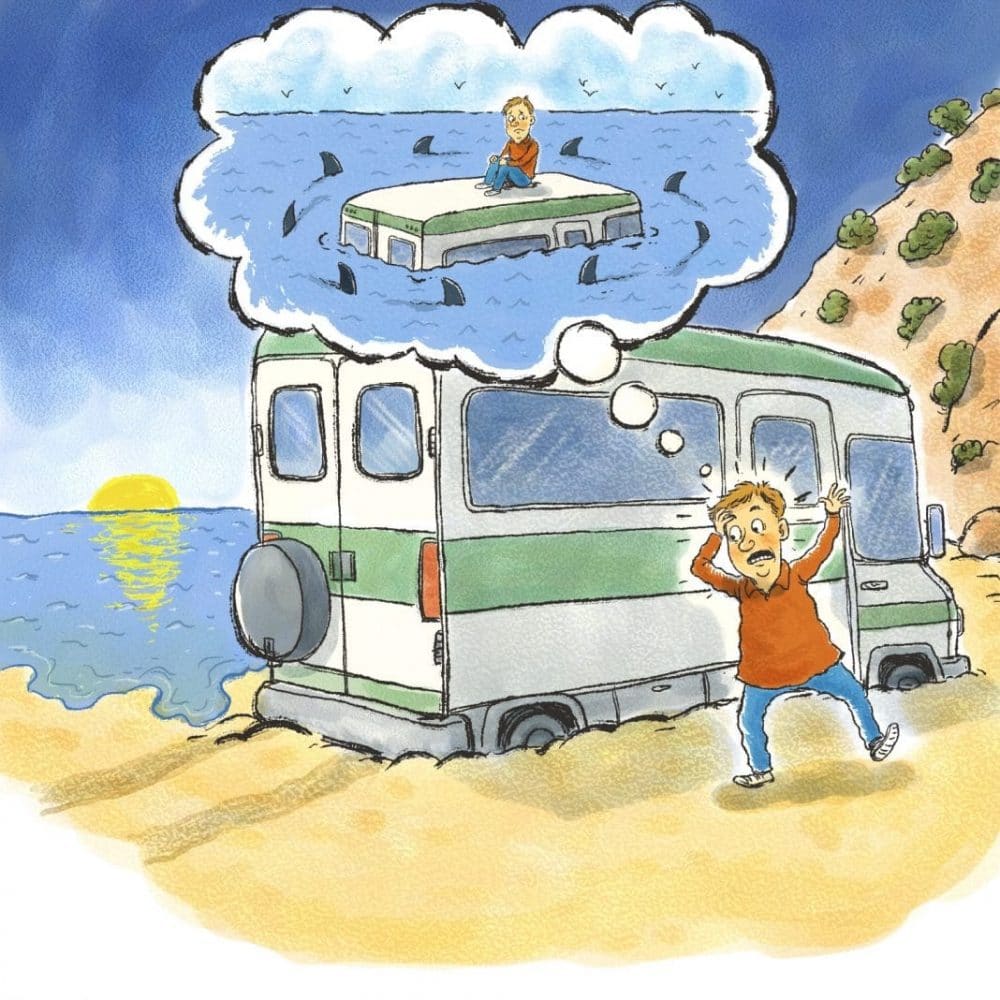
The Oregon coast has a number of access points for driving onto beautiful, sandy beaches. Harry decided to do just that with his Class B motorhome to check out the possibility of camping for free with a view of the ocean. He drove on the beach for about 10 minutes when he noticed a little cove that might be a good spot to tuck in for the night. As he approached, he decided to stop and check it out. Unfortunately, when he got back in to move farther into the cove, his rear tires dug into the sand. The more the tires spun, the deeper he sank, until he was up to the rear axle. Without a shovel, he used a leveling board to scrape the sand away in front of the rear tires. No luck … he was firmly stuck below the high-water line, about two hours away from the ocean filling the inside of his van.
Not having a cellphone, Harry frantically ran to a nearby house to see if he could phone for a tow. The owner had a 4WD SUV and said he would pull him out. That didn’t work, so he called a friend who also had a 4WD vehicle. Together, they pulled the van onto hard sand, stopped, and disconnected the towlines. Harry offered to pay, but they said they were just happy to help. After a big “thank you,” Harry drove back to the entrance where he came onto the beach and, without stopping, continued onto the blacktop. After driving off to a nearby parking lot (free, but without an ocean view), Harry said, “I will never again look for a campsite on a sandy beach.”
It’s just as well: while it may be legal to drive and get stuck on an Oregon beach, overnight camping is prohibited, which is a good thing considering that high tides and sneaky waves could put a damper on your RV experience.
Black-and-Blue Toad
While driving their older motorhome across Canada, Mike and Debbie stopped for fuel and topped up the oil. Four hours later, at a rest stop, Mike did a walk-around. Oops! The back of their coach and their once-blue Jeep dinghy vehicle were blanketed with oil. Opening the engine cover, he noticed that the oil-fill cap was missing. None of the local truck stops and RV dealers he phoned had a proper cap.
Being a handy kind of guy, Mike fashioned a cap by cutting an aluminum can in half and attaching it over the fill hole with a 2-inch gear strap. He then spent hours cleaning off a gallon of oil that had sprayed out of the fill hole. Unfortunately, the next leg of their trip resulted in the same outcome … another gallon of oil covering their toad and back section of the motorhome. Upon inspection, engine vibrations had worn out the aluminum can, allowing oil to again spray out of the fill hole.
Undeterred, Mike folded a plastic sandwich bag into quarters and attached it with the gear clamp. Even though the bag pulsated with the pressure, it held for the remainder of their six-week trip, when he was able to get a replacement cap. But the saga continued. On their annual trip south, Mike topped up the oil and a few hours later, another shower of oil. This time, Mike found the cap lying on the inside of the engine compartment. “I’m sure I replaced it after adding oil. On a positive note, after three baths in oil, we have a Jeep that will never rust!”
As a preventative measure, Mike drilled a hole in one of the cap handles and attached a plastic zip tie, so the cap would hang near the oil fill hole as a reminder to replace and tighten it.
Helpful hint: Always replace and securely tighten the oil-fill cap after adding oil.
Seeing Black Spots
Fred and Marla bought a 4-year-old motorhome, which came with an outside carbon water filter that attached to the water intake hose. They often boondocked after filling their freshwater tank through the filter. One day, Fred noticed that the water pressure was quite low and thought that maybe it was time to replace the filter. He did so, but even with a new filter, the pressure remained low.
Fred dismantled the water pump and found the filter screen clogged with black carbon. Apparently, the old filter, which had been used well beyond its replacement date, had ruptured internally, allowing carbon to escape into the water. Cleaning it made some difference, but not for long, since bits of carbon in the freshwater tank continued to clog the pump screen. After repeatedly filling and emptying the tank, water pressure was back to normal, even though black spots occasionally showed up in their drinking water for weeks afterward.
Helpful hint: To ensure clean drinking water, follow the manufacturer’s suggestions for replacing water filters, at least annually, if you use the motorhome regularly.
Bumpers are for Bumping
While touring Alaska in his motorhome, Roger missed a turnoff and continued on until he found a small gravel parking lot. It looked big enough to turn around, so he made a tight U-turn in the lot and powered up a steep incline to get back on the highway. Unfortunately, because of the small lot, he was angled slightly off to one side of the exit. Crunch! The bottom right corner of his bumper caught the gravel and broke a weld, causing the bumper to hang low on that side. Had he been able to approach the exit straight on, the bumper would have cleared the gravel. Roger said he continued on his journey for a few more weeks with the front end “looking like it was permanently scowling!”
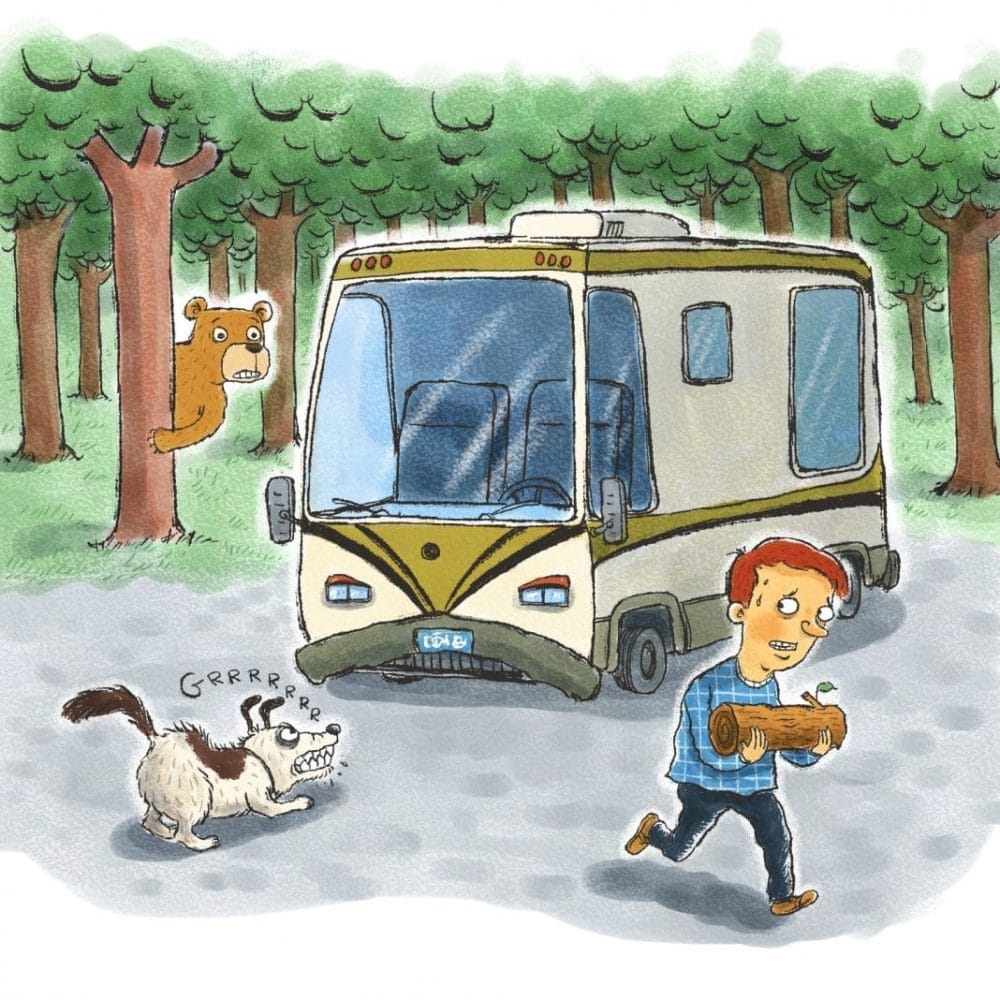
Mr. Sparky
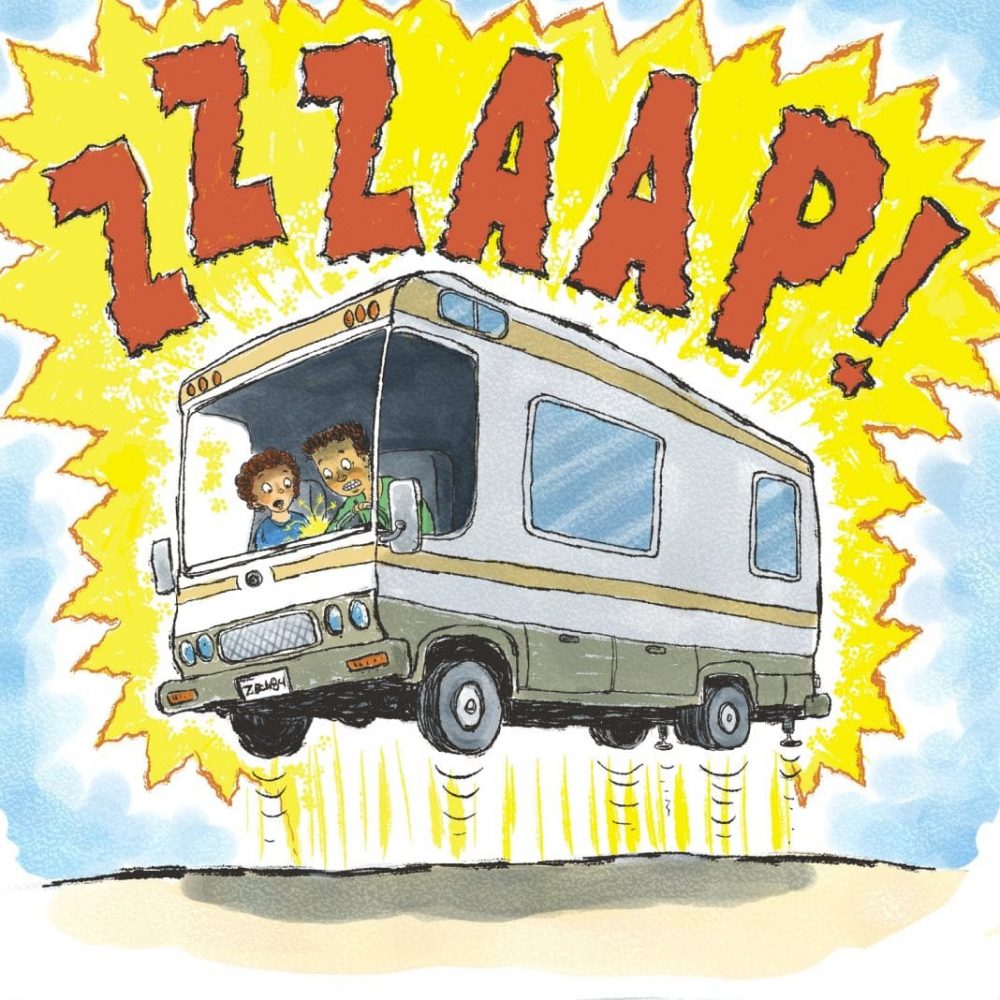
Dick had stored his motorhome over the winter with the leveling jacks in the “down” position. Come spring, he and his wife were all packed and ready to hit the road for a weekend of camping. When it became time to raise the jacks, he pushed the “retract” button but nothing happened. After pushing the button about a dozen times, Dick decided to increase the fuse amperage from 15 to 30 amps. “Maybe a heavier fuse would make a better connection.” This time when he pressed the button, he saw sparks and heard a loud Zzapp! The circuit board had multiple burned components but the jacks were still down.
Instead of camping, Dick used the weekend to track down a new circuit board and talk to an RV mechanic about his jack problem. The mechanic diagnosed it as most likely “faulty solenoids.” Sure enough, replacing the jack solenoids and the new circuit board (with a 15-amp fuse) resulted in the jacks retracting.
Helpful hint: Always use the proper size fuse in appliances; oversized fuses can potentially result in blown circuit boards and electrical fires.
Curbs, Posts and Martinis
After purchasing some groceries and gin for his favorite drink, David was maneuvering his motorhome through the parking lot and cut a corner with a raised concrete curb. His right rear wheels went over the curb and into a recession, followed by a crunch! The rear stabilizer jack, just behind the wheels, had gotten caught on the outside of the curb and was bent backward at a severe angle.
The story gets better … or worse, depending on your perspective. After disengaging the jack from the curb, David proceeded to a campground where I was camped in an adjacent site. While backing into his site, he hit a 12-inch-diameter wooden post, used to protect the electrical box. While showing me a broken sidelight, scraped paint and a crack in the fiberglass, his wife insisted, “I hollered for him to stop but he didn’t hear me.” David took me aside and quietly remarked, “I swear she never said a word, but two screw-ups in one day definitely justify two martinis, don’t you think?”
Helpful hints: Use extra caution when driving through parking lots, as they are typically designed for automobiles rather than large RVs. And use a walkie-talkie system (with the volume turned up!) when backing up.
Just Don’t Back Up
Doug had just packed up his motorhome to leave the campground. After pulling out of his site, he moved over to the side of the road to hook up his dinghy vehicle. After doing so, he realized that he didn’t have enough room to make the sharp turn in front of him, so he decided to back up. When he had gone about 10 feet, he saw in his rearview camera that the front wheels of his car were turned almost sideways. However, they straightened out as he pulled forward to leave the campground.
After arriving home and disconnecting his car, he noticed a warning light “Service All-Wheel Drive” on his dashboard, which came on each time he drove the car. His local dealership found that the “Steering Wheel Position Sensor” needed to be replaced, likely a result of the front tires being turned an excessive amount when he backed up in the campground. The cost of a new sensor (more than $600) impressed on Doug an important lesson: “Never back up the motorhome when the tow car is attached, even for a short distance.” Although he did add, “If my wife had held the steering wheel while I was backing up, none of this would have happened!”
Look Out Above!
Alex and Doris were the proud owners of a new 33-foot Class A. After driving home from the dealership, Alex parked it very carefully on their short driveway as close as possible to the garage. After examining some of its features, they decided to test the auto-level function. Alex was outside to watch, but an inquisitive neighbor distracted him as the motorhome began leveling. The back end went up … and up … and still more up, tipping the front end closer to the garage. Smash!
The front windshield had collided with a nail protruding from the roof overhang, punching a hole and fracturing an area more than a foot in diameter in the glass. Alex said, “We were devastated, so much so the damage was difficult to see through our tears!” Two weeks and $2,800 later, they were able to use their motorhome on their first trip, where the leveling system worked just fine.
Helpful hint: A friendly well-meaning neighbor can distract us at exactly the wrong time. “Can we talk later? I need to pay attention here,” would be appropriate comments to make when you should be focusing on the task at hand.
A Muddy Road Ahead
Nate and his family were traveling cross-country in their Class A with a Jeep Cherokee in tow. In North Dakota, because of road construction, they were stopped by a flag person and advised to take a detour to avoid about 25 miles of rough gravel road ahead. To do so meant an additional 50 miles to reach their destination. The flag person was allowing travel on the road, but indicated, “Neither the state nor the company would be responsible for damages.” After a quick calculation of the additional fuel and time required for the detour, Nate decided to “Go for it! How bad could it get if other cars and trucks were heading down the road?” He was about to find out.
After a few miles, the road got muddy and construction crews were spreading gravel in the slippery spots. It was definitely a white-knuckle drive, with several delays allowing for one-way traffic. Two hours later they were back on paved highway and shortly thereafter, pulled into a rest stop to check out the rig. The motorhome was a bit muddy but the Jeep looked like it had gone through a war zone. The entire front end was pock marked from stones thrown up by the rear tires of the coach. The repair bill, including a new windshield, grille and headlights, came to over $5,000. Nate’s hindsight assessment: “Taking the detour would have saved me both time and money.”
Helpful hint: Yogi Berra’s quote “When you come to a fork in the road, take it” can be paraphrased for RVers: “When you come to a detour in the road, take it.”
One Cool Trip
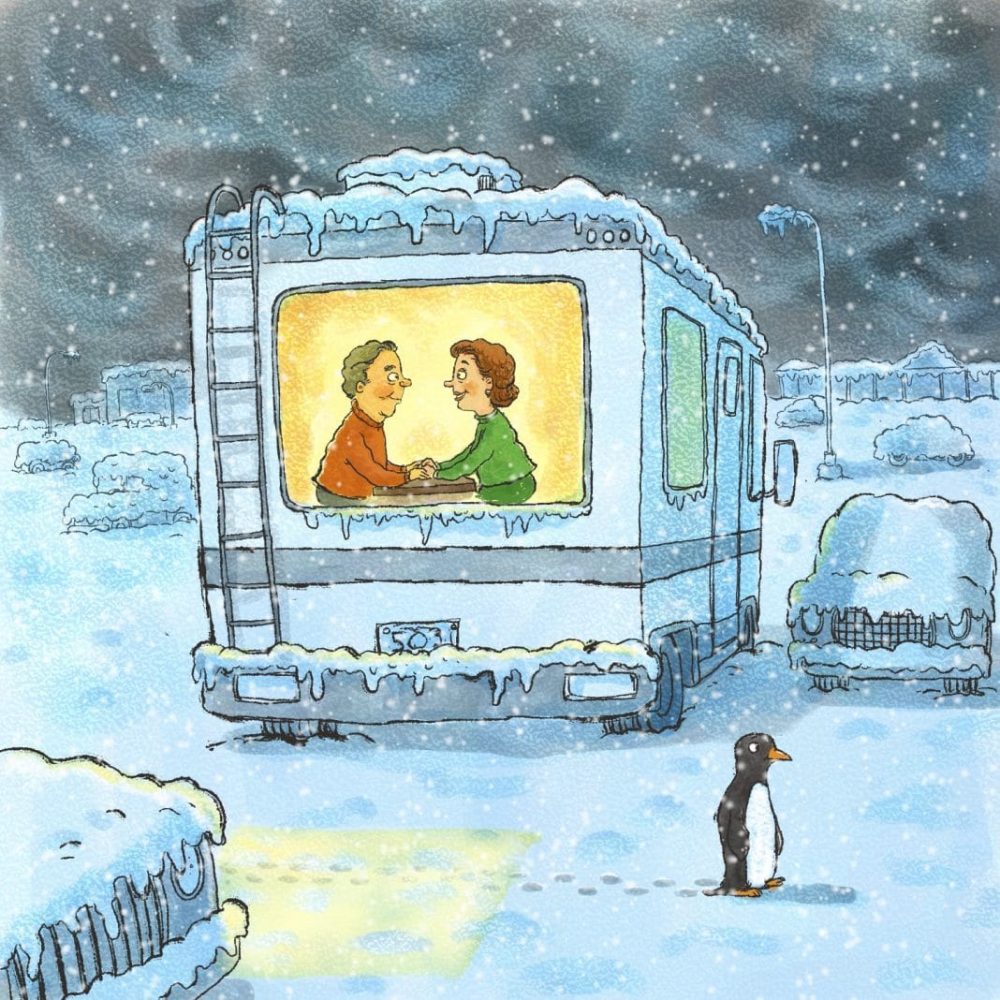
Roy and his wife had recently retired and decided to pursue the RV lifestyle by purchasing a large motorhome. Their first major adventure would be to drive across Canada, beginning in May, from British Columbia to Newfoundland. A complete lack of pre-trip planning resulted in a number of problems … five to be exact.
Their first problem was not towing a dinghy vehicle. Very early in their trip, they discovered that “seeing the sights, especially within cities, meant taking long walks or busses and cabs after parking the coach some distance away.”
By mid-October, they had arrived in Ontario, where they encountered their second problem. Because of occasional below-freezing temperatures, most campgrounds had already closed for the winter, so they found themselves staying overnight in various parking lots. Fortunately, their furnace kept them reasonably warm.
Their third problem, related to the closed campgrounds, was dumping their black- and gray-water tanks and filling their freshwater tank. Instead of seeing the sights, they spent hours trying to find a dump station and freshwater outlet.
Quite unexpectedly, they encountered their fourth problem in the province of Prince Edward Island (PEI), which Roy described as “a bunch of small towns all boarded up.” Many businesses in PEI thrive on tourism and close for the winter. The same holds true for New Brunswick and Nova Scotia.
Their fifth, and biggest, problem occurred when Roy and his wife had to fly back to British Columbia for a few weeks, putting their motorhome in temporary outdoor storage. When they returned, they discovered the freshwater tank had frozen solid and split open, and the water lines had also broken, costing more than $3,000 for repairs. Roy forked out additional money for three days in a motel while the repairs were being completed. They headed south the very next day, and also bought a dinghy vehicle at their first opportunity.
All in all, this was an expensive, frustrating and eye-opening experience for these newbie RVers … one that definitely warrants our Dumbest Award for this year.
Helpful hints: When planning an extended RV trip, do some research on your intended campgrounds and local weather conditions, especially for a cool-weather trip! And don’t forget your dinghy vehicle!
So there you have it, another year of mishaps that teach us what NOT to do while RVing. Now, take a moment to think about your own RVing experiences. Have you never done anything dumb, or have you done lots of dumb things? Either way, please share your knowledge and experiences around the virtual campfire with fellow RVers in the comments section below.




